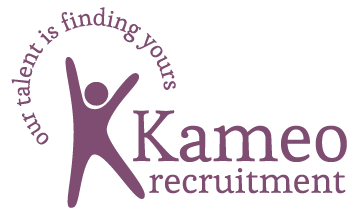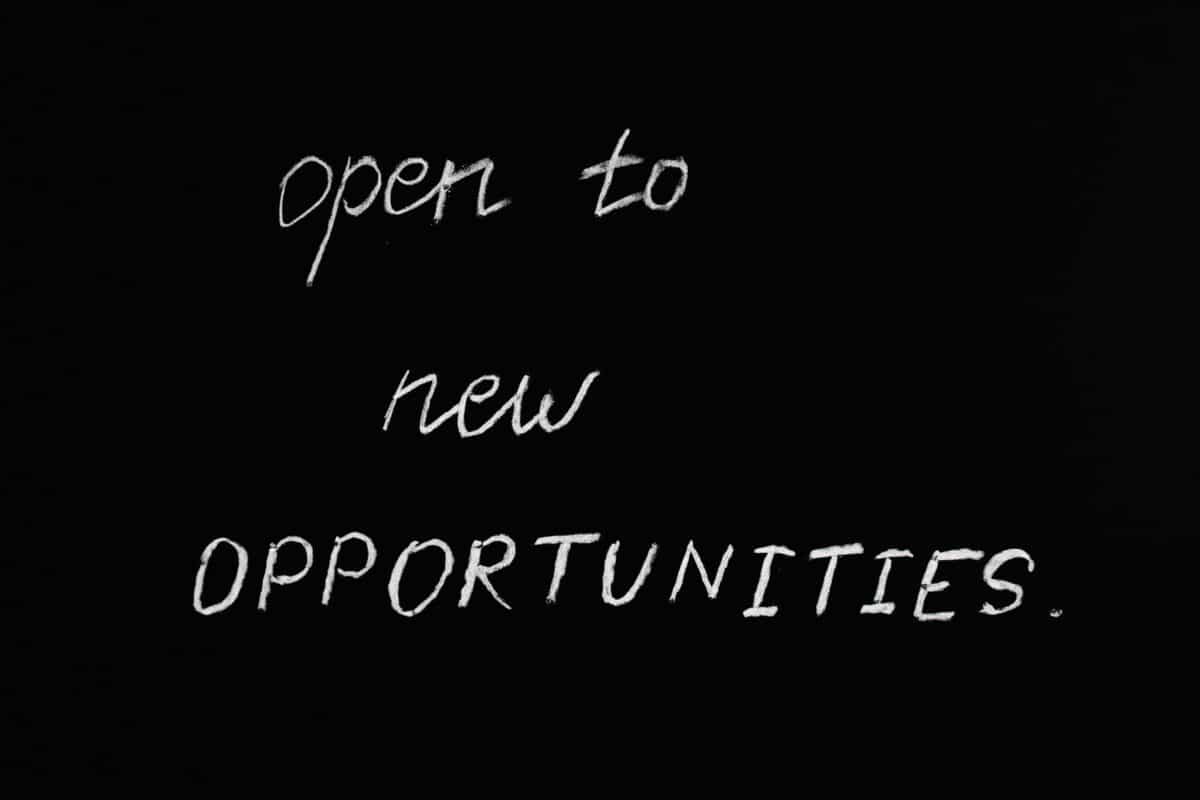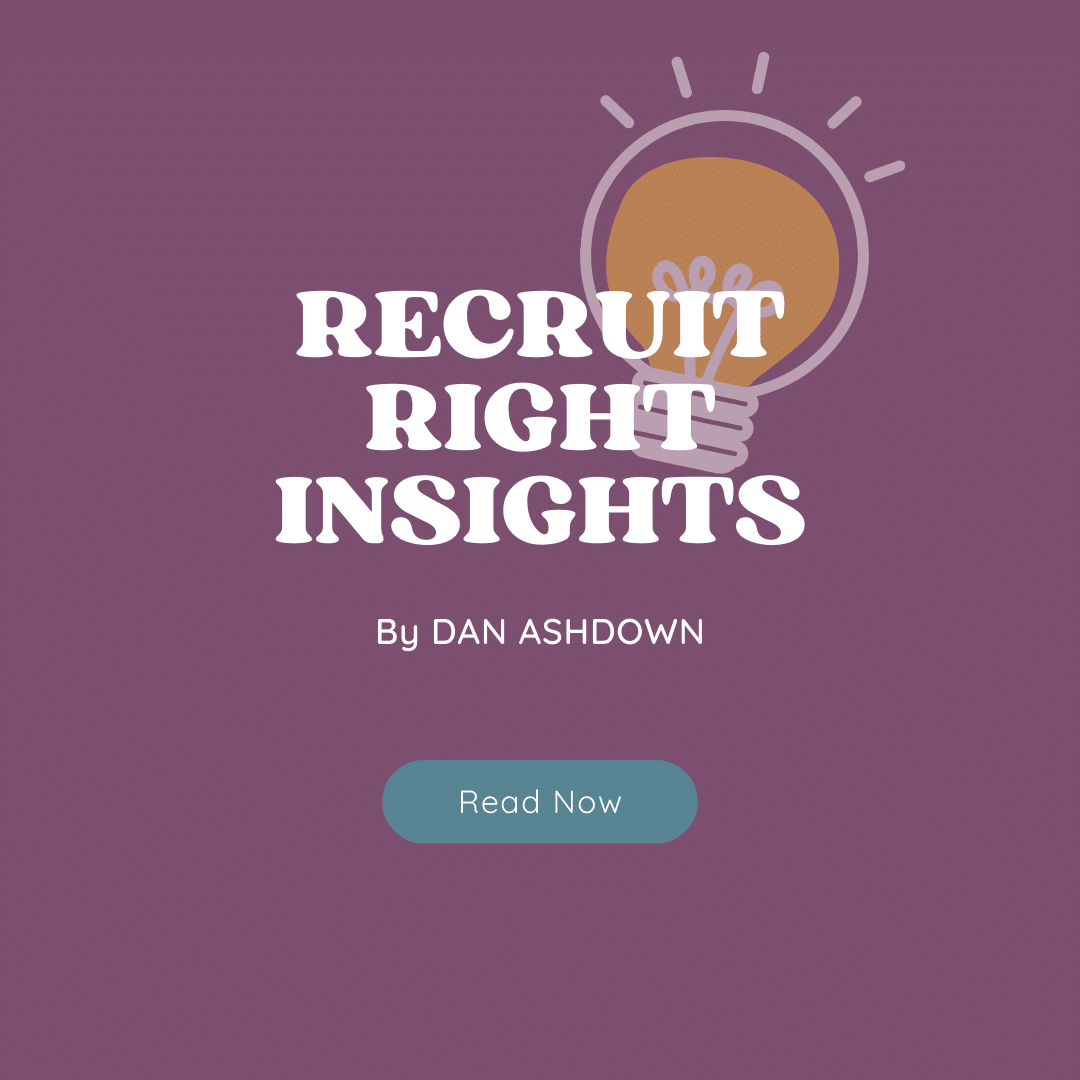Kameo’s News
Spring into Identifying the Skills Gap in Your Business!
Almost three-quarters (72%) of organisations say that a skills shortage has led to an increased workload for other staff, and 78% say they are experiencing reduced output and profitability as a result (source).
Two things we know so far about 2024:
- Job vacancies are falling
- Skills-first hiring is not embedded into the recruitment strategy of enough businesses.
Are you struggling to keep up with the ever-evolving labour market? Uncertain where to focus your recruitment efforts, or which role to hire for first?
First things first: tip or at least balance the focus on skills-first hiring. The traditional method of valuing education over skills is not doing you any favours; in 2024 skills reign supreme and those businesses who already know this have access to a wider pool of candidates, appear more attractive on paper, and are likely to see a reduction in their miss-hire rate (source: Forbes).
The Rise of the Skills Economy
In recent years, the global economy has witnessed a seismic shift towards what is often referred to as the “skills economy.” This shift is driven by rapid technological advancements, evolving job roles, and the demand for specialised expertise across industries. As a result, employers are placing greater emphasis on candidates’ practical skills and capabilities rather than their formal education.
So, our questions to you:
- When was the last time you carried out a skills-gap audit?
- Are your employees falling behind?
- Is your business struggling to make a profit?
- Have you considered how quickly the world evolves, and is your business evolving with it?
If you answered never or yes to any of these questions read on…
Conduct a Skills Assessment
This is simple, attainable, and measurable. What are the current skills of your employees? Has technology allowed for their role to adapt, grow or change for the better? And, are you making room for this advancement in their position? If most of your employees are failing to meet the requirements of their role, as outlined by your organisation’s strategic objectives, we suggest you point fewer fingers of blame and look within, now is the time to conduct surveys, interview employees, carry out market research and understand the gap between the skills they need and the skills they currently possess.
Drop in with Employees!
The world seems to be spinning a little faster these days, right?! Truth is, we’re all busy! But, if you’re a team leader, manager or similar, we encourage you to set intentional time aside to focus on employees within your team or business. Do you encourage open communication? Do you actively listen? Note the difference between listening and active listening. Through open communication managers can better understand the career aspirations of their team this may include their skill development needs, and areas where they feel they could benefit from additional training or support. Employee feedback can and will provide valuable insights into skills gaps, especially if more than one person has a similar thought or feeling.
What is the Competition Doing?
We often emphasise the importance of staying in your lane, but sometimes we forget to notice when the speed limit changes from 40 to 60 mph. Nobody likes admitting they’re on the back foot or not doing as well as their competitors, but it is worthwhile, now, and again, to compare your organisation’s skill requirements and capabilities to those of competitors and industry benchmarks. Identify areas where your organisation may be lagging e.g., are you up to date with the latest tech for your industry? Is there a significant disparity in skills?
Access Industry Trends and Future Needs
Stay informed about industry trends, technological advancements, and changes in the business environment that may impact the skills required for success in your organisation. Anticipate future skill needs and proactively address potential gaps through strategic planning. Again, just a like a social media manager must incorporate engagement into their planning time, you too will need to set time aside to focus on industry trends and the needs of your team.
Monitor Recruitment and Hiring Challenges
It’s a hard pill to swallow but people don’t leave bad companies, and whilst they don’t necessarily leave bad managers either they may leave for a better opportunity. We encourage you to pay attention to recruitment and hiring challenges, such as difficulty finding candidates with specific skills or high turnover rates in certain roles. If you’re fortunate enough to have a talent acquisition team, can they do a quarterly audit on this? If not, it is something we encourage you to pay attention to and review regularly. Ultimately, some of the hiring challenges may indicate underlying skill gaps within the organisation that need to be addressed. Do you carry out exit interviews? Do you truly understand why employees leave, where they go next and what lead them there?
How to bridge the skills gap?
Now, we’re not the type to present you with a problem without looking for the solution too! So, if you’ve read this and thought – yes, there is probably a skills gap issue in my business and/ or you’ve carried out an audit and know one exists, we can help with that too…
- Develop Training Programmes: all training offered should address identified skills gaps, training can include a mix of internal and external training resources.
Roughly 86% of employees say that job training is important to them – and nearly three out of every four (74%) are willing to learn things outside of work hours to improve their job performance (source).
- Take advantage of free webinars, workshops etc: anything to help your team upskill! We advise regularly logging onto Eventbrite and widening your network on LinkedIn to stay on top of the businesses who regularly hold training sessions.
- Introduce mentorship and coaching: pair employees with mentor or coaches who can provide guidance, support, and feedback as they work to develop new skills.
Organisations with strong coaching culture had a 47% higher revenue per employee than those without (source).
- Feedback and recognition: regularly assess the effectiveness of initiatives aimed at bridging the skills gap and adjust as needed based on feedback from stakeholders and changing market demands. In addition, regularly gathering feedback and recognising employees builds someone’s sense of value and purpose; it also reinforces positive habits and encourages more of the performance an employer wants to see.
- Investment in technology: the IT and technology skills-gap is getting wider, and businesses must start leveraging technology to mitigate a lack of skilled resources.
In 2023 Forbes research found that 93% of UK businesses acknowledge an IT skills gap (source).
To summarise, in today’s dynamic business world, recognising and addressing skills gaps is crucial for staying competitive. Assess your workforce’s skills, stay updated on industry trends, and invest in training to bridge any gaps. Businesses who are open to and invest in a culture of learning and growth, can thrive in this changing world if you look toward developing a business fit and ready for 2024 and beyond!
Is your business already working on bridging the skills gap? Which of these methods have you deployed or what are you doing that is different? Let us know [email protected]!
For more Kameo updates, insights and news click here.

Navigating the Landscape of Expected Pay Awards for 2024: Strategies for Transparent Communication with Staff
In 2024, companies are taking different paths with employee pay. Some plan big raises, others are freezing pay. With 24% aiming for 4–4.99% increases, 19% going for 2–2.99%, and 17% planning above 6%, they all have one thing in common: clear communication is vital for staff.
Understanding the makeup of these anticipated pay awards is crucial for both employers and employees alike. For businesses, it signifies a delicate balancing act between managing financial resources, retaining talent, and remaining competitive in the market. On the other hand, for employees, it directly impacts their financial well-being, morale, and perception of their value within the business.
For businesses planning substantial pay increases, it’s an opportunity to demonstrate their commitment to employee satisfaction and retention. Such businesses can leverage these planned increments as a tool for attracting top talent and rewarding high performance. However, effective communication is key to ensuring that these efforts are perceived positively by the workforce. Transparency regarding the rationale behind the pay increases, such as company performance, market trends, or employee contributions, fosters trust and reinforces a sense of fairness among employees.
However, for businesses contemplating pay freezes or a modest pay rise, the challenge lies in managing employee expectations whilst maintaining morale and engagement. In such cases, honest and empathetic communication is crucial. Employers should prepare to openly address the reasons behind these decisions, whether they stem from economic uncertainties, budget constraints, or strategic considerations. Additionally, offering alternative forms of recognition, such as non-monetary incentives, will help with employee morale. According to People Management (PM), 50% of UK workers would rather have “great relationships” at work than a 10% pay increase (source). While salary is undoubtedly crucial, employees consistently show that they also value feeling appreciated, fostering positive relationships, and ultimately experiencing job satisfaction.
Regardless of the chosen approach, effective communication with staff is essential to navigating the complexities of expected pay rises for 2024. Here are some strategies to facilitate transparent communication and foster employee understanding and engagement:
- Provide Context: Clearly articulate the factors influencing the business decision regarding pay rises, such as market conditions, financial performance, and strategic objectives. This helps employees comprehend the rationale behind the chosen approach.
- Seek Feedback: Encourage open dialogue with employees to understand their concerns, expectations, and suggestions regarding pay. Actively listening to their perspectives promotes a sense of inclusivity and demonstrates respect for their input.
- Offer Clarity and Transparency: Be transparent about the criteria used for determining pay increases or freezes, ensuring consistency and fairness in the process. Clear communication helps alleviate uncertainty and minimises misconceptions among employees.
- Empathise and Support: Acknowledge the potential impact of pay decisions on employees and express empathy towards their concerns. Offer support mechanisms, such as access to resources for financial planning or opportunities for career development, to assist employees during periods of uncertainty.
- Emphasise Future Opportunities: Communicate the business’s commitment to employee growth and development, highlighting future opportunities for advancement, skill enhancement, and reward. Aim to adopt a culture of continuous learning and progression as this reinforces employee engagement and retention.
In conclusion, navigating the landscape of expected pay for 2024 requires a strategic blend of financial prudence, employee engagement, and transparent communication. By proactively addressing employee concerns, offering clarity and empathy, and emphasising opportunities for growth, businesses can effectively communicate their decisions regarding pay and embrace a culture of trust, fairness, and collaboration within the workforce.
For related content, see here.

Strength in Partnership: Why Businesses Thrive with Recruitment Agencies by Their Side
A talent acquisition team without a trusty recruitment partner could be like coffee without caffeine ☕
Who benefits? You, the teams you recruit for, the new people you hire and of course, us!
Five reasons you can elevate success with us…
Reason one: access to a larger talent pool:
It’s no secret that recruitment agencies have access to a vast network and an ever-evolving database of candidates, passive and active.
As much as 70% of the workforce is made up of passive candidates who aren’t actively seeking work. If you are only relying on active job seekers, you’re cutting your talent pool down to just 30% (source).
You see, you need us, and we need you.
Reason two: specialist expertise:
Recruitment agencies often specialise in specific industries or job roles. Their recruiters have a deep understanding of the market, industry trends, and the skills required for various positions. This specialised knowledge can be beneficial when hiring for niche or technical roles.
A poor hiring decision could be detrimental to your finances, the estimated cost of a bad hire is approximately 3 times more than the salary paid (source).
Reason three: time and cost savings:
How much time is your current talent acquisition team spending on sifting through endless CVS, before they even begin conducting interviews? That’s the magic of partnering with a recruitment agency; they’re essentially the superhero sidekick your team never knew they needed. They will prevent you from spending your precious time and resources so you can focus on moving the business forward in other ways e.g., mastering that onboarding experience of ensuring the first day in the new job is incredible!
Specialist agencies will often have access to a treasure trove of talent your internal team might not even know exists. They’ve got the tools, the know-how, and the secret suave to identify, woo, and win over your ideal candidate.
Did we mention cost savings? Sure, there’s a fee involved, but think of it as an investment in efficiency. By slashing your time-to-hire and minimising turnover, a specialist recruitment partner can save you plenty of pennies in the long run.
Reason Four: hard to fill roles:
We’ve all seen them and most of us dread them, but not your trusted specialist agency! No, they thrive off a hard to fill role. Nothing says success better than finding you your perfect candidate for that “hard to fill” role.
Truthfully, you could do it yourself but roles like this need an amended game plan and an extra bit of finesse!
Our top strategies for filling your “hard to fill” roles include:
- Targeted search, we deploy specialised tactics to track down the perfect fit.
- Creative sourcing, we think outside the box every day – we LOVE it!
- Personalised approach because we know one size doesn’t fit all when it comes to hard-to-fill roles. We craft tailored messages and elevate your brand to woo candidates and show them why your opportunity is the one they’ve been waiting for.
- Tapping into that passive market, remember the one you don’t have access to?!
- Persistence and patience, because Rome wasn’t built in a day, and neither is a dream team. Specialist agencies use their market knowledge to paint you a realistic picture of how long it might take to find the perfect match. Sometimes recruitment is about weathering the storm.
Reason Five: Market Insights:
Recruitment agencies aren’t just matchmakers; they’re like talent scouts armed with insider info! They’re salary benchmarking experts, they can spill the tea on competitors’ hiring tactics, and even forecast talent trends like psychic recruiters. With their market insights, you’ll make strategic moves that leave the competition scratching their heads and scrambling to keep up. Think of them as your secret weapon in the war for talent!
To summarise, who doesn’t like maximising their time and seeing their fill rate soar? Partnering with a specialist recruitment agency can do just that! For optimal results choose wisely, and select an agency that aligns with your values and goals. We’re big fans of communication here, and it’s crucial to a successful and thriving recruitment partnership (in our opinion!) Why waste another minute drowning in CVs for hard-to-fill roles when you could be conquering the other complexities of the talent world? Partner up with an expert recruitment agency and watch your team soar to new heights – while they handle the rest!
Read more Kameo news here.
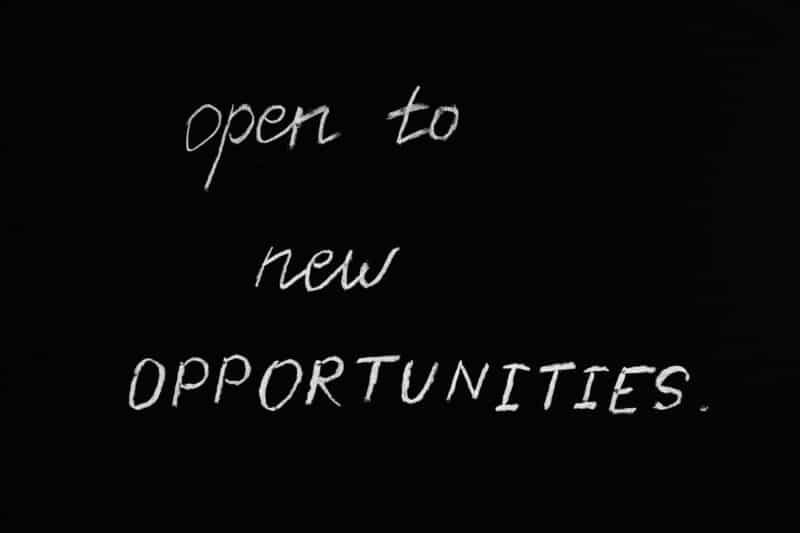
5 ways to help your team future-proof their finances
A recent article shared by the BBC stated: “A single person will need £31,300 a year for a moderate income in retirement.” This comes from a pensions industry body.
The ongoing cost-of-living crisis is a challenge that will endure for years to come, prompting individuals to reassess their pensions, savings, investment choices, and strategies. As we navigate this crisis and the recently unveiled recession, it’s essential to make informed decisions about our financial futures.
We firmly believe the workplace can hugely and inexpensively help employees future-proof their finances, according to professional pensions nearly half of UK employers plan to boost their financial wellbeing investment this year, are you one of them?!
Here are our top FIVE ways to help your team future-proof their finances:
- Educate on Financial Literacy:
Financial literacy means understanding how to manage money wisely. It’s about knowing how to budget, save, invest, and handle debt effectively. When you’re financially literate, you can make smart decisions about your finances and plan for your future with confidence.
At work, you can offer workshops or resources that enhance your team’s financial literacy. Topics to cover include budgeting, saving, investing, and debt management to empower them with the knowledge needed to make informed financial decisions.
Did you know that as many as 24 million UK adults do not know how to manage their debt? Source. Debt and financial insecurity actively contribute to our stress levels and ultimately workplace productivity, therefore, when businesses take the time to work on financial literacy everyone benefits.
- Encourage Retirement Planning
You may be surprised to hear just how many of your employees are in the dark when it comes to understanding workplace pensions, a recent study revealed up to 41% of UK employees do not understand their pension (source).
Do you discuss the pension scheme on offer at your workplace as part of the onboarding process? If not, perhaps now is the time to start.
Your employees need to understand the importance of contributing to their pension and the benefits of employer-matching contributions (where applicable).
Provide access to resources such as: pension calculators and financial advisors, or simply the Finance Director you employ, to help employees understand their pension options and set realistic retirement goals.
Where possible, regularly review pension contributions and retirement plans with employees, offering guidance on adjustments as needed to ensure they are on track for a comfortable retirement. Supporting employees in navigating the UK pension system empowers them to make informed decisions about their financial futures.
- Promote Emergency Funds
Encourage the habit of saving for emergencies by highlighting its importance. Educate your team on the recommended amount to save and strategies to build an emergency fund gradually.
Nobody says it quite like HSBC, it is after all their expertise and not ours – https://www.hsbc.co.uk/financial-fitness/growing-your-money/build-emergency-fund/
Can you share this article with your employees, put it on your intranet or, add it to your discussion points in your next team meeting?
There’s no need to single anyone out; simply knowing how to start an emergency fund could be incredibly helpful to someone. It’s simply about making sure this valuable information reaches everyone who could benefit from it.
- Offer Financial Wellness Programmes
According to HR Grapevine, almost a third of organisations offer a financial wellbeing programme, designed not just to help reduce debt but also to help employees get the most from their money and achieve their financial goals.
Having a financial wellness program in place can benefit businesses in various ways. It enhances employee morale and loyalty, reduces turnover costs, and boosts productivity by alleviating financial stress, did you know 1 in 5 employees say financial stress impacts their productivity (source).
However, employees with access to financial education and resources are better equipped to make informed decisions about their finances, leading to greater stability and security. Additionally, offering a financial wellness programme can be a valuable recruitment tool, helping businesses attract top talent. Overall, investing in financial wellness demonstrates a commitment to employee well-being and yields positive returns for both employees and the organisation.
- Provide Flexible Benefits Options
Flexible benefits, also known as fringe benefits, are additional perks offered to employees alongside their standard remuneration package. These benefits allow employees to customise their packages based on their individual needs and preferences. By giving employees, the freedom to tailor their benefits, you embody a culture of individuality and increase employee satisfaction while addressing financial wellbeing.
One key advantage of flexible benefits is their role in cost management. They create a controlled environment where spending is allocated precisely to the benefits most valued by employees. This strategic approach ensures resources are optimally utilised while meeting the diverse needs of the workforce.
In summary, flexible benefits empower employees to personalise their package, aid in cost management, and support financial literacy, ultimately contributing to a more satisfied and financially secure workforce.
In conclusion, achieving financial resilience for your team starts with proactive measures that empower and support each member on their journey toward stability and success. By adopting the tips outlined in this article, you not only provide your team with the necessary tools and knowledge to tackle future financial challenges but also demonstrate your commitment to their wellbeing as an employer. This contributes to the creation of a positive work environment, reduces turnover, and enhances productivity and morale. In essence, prioritising your team’s financial health isn’t just a good idea—it’s a savvy business move that benefits everyone involved.
Read more from Kameo.

Welcome to the Workforce of Tomorrow: 2024’s Quirky Job Titles Shake Up the Status Quo!”
Let’s get stuck in, because in the blink of an eye, job titles are about to evolve massively. With each passing year, it feels like we’re in a constant game of catch-up with the latest tech trends. So, it shouldn’t come as a shocker that many of the job titles popping up in 2024 belong to the tech sector.
From AI and sustainability to remote work, here’s a glimpse into the 2024 job scene and beyond…
- AI Ethicist
AI is everywhere, right? But who’s keeping it in check? That’s where the AI Ethics Consultants come in. They’re like the guardians of the digital realm, making sure our AI pals behave themselves. From tackling bias to guarding our privacy, these folks are the unsung heroes of the tech world, ensuring a smoother ride through the wild west of artificial intelligence.
Want to become one? Find out how here.
- Renewable Energy Analyst
I delved into LinkedIn to gauge the pulse of renewable energy analyst roles in the UK. And there were a whopping 225 listings for renewable energy roles! Impressive, right? But then, just for kicks, I decided to peek at marketing analyst positions, and guess what, a mere 136 listings!! But honestly, everyone is trying to do their bit so is it really that surprising to discover that the green revolution is outpacing the marketing mavens?
In the ongoing effort to combat climate change, Renewable Energy Analysts play a vital role in promoting sustainability. With their expertise and analytical skills, they assess the efficiency of renewable energy sources like solar panels and wind turbines. Their work involves designing energy models to ensure a greener future for our buildings and communities.
Fancy taking on the challenge? Take a sneaky peek at the list of questions you might be asked at interview!
- Cybersecurity Incident Responder
The numbers don’t lie – cyber-attacks surged by 125% globally in 2021 compared to 2020, and the trend continued into 2022, posing an ongoing threat to businesses and individuals. (source.)
Have you ever wondered who the digital superheroes are, tirelessly guarding our virtual fortresses from cyber threats? Meet the Cybersecurity Incident Responders! They are our tech-savvy heroes who stop cybercriminals by detecting, mitigating, and recovering from security breaches at lightning speed. Armed with expertise in threat analysis, digital forensics, and crisis management, they’re the digital-first responders we all need. Also, fun fact, did you know there is a job title in this sector called Penetration Tester?
- Augmented Reality (AR) Developer
Augmented Reality is on the rise and likely to turn industries upside down (in a good way). These digital enthusiasts perfectly blend pixels and reality, creating experiences that’ll leave us questioning what’s real and what’s just a fantastic AR illusion. This job is on the rise so let’s get ready to step into a world where the line between the digital and physical blurs into one.
- Virtual Reality (VR) Experience Designer
As VR tech keeps pushing boundaries, the hunger for digital thrills only grows. That’s where Virtual Reality Experience Designers swoop in, crafting mind-blowing VR realms for everything from gaming and entertainment to educational and training purposes. So, whether you’re battling virtual dragons or mastering new skills in a digital classroom, these designers are the experts behind the scenes!
Did you ever wonder how much AR/VR is shaking up our world? If not, now’s the perfect time to dive in and discover the magic! By 2024, global spending on these mind-bending technologies is set to skyrocket – six times more than what we saw in 2023! So, grab your virtual goggles and get ready for an adventure because the future of reality is looking brighter and more immersive than ever! (source).
- Chief Resilience officer
Chief what? Around for about five years now, but with recent external pressures, businesses are feeling the heat. Say hello to the Chief Resilience Officer! These officers are like the steady hands guiding companies through uncertain times.
If the past four years have taught us anything it’s that uncertainty is the new normal and to survive you must have resilience. A Chief Resilience Officer crafts strategies tackling everything from pandemics to economic turbulence.
Fancy joining the other 419,000 people (thank you, LinkedIn) in the resilience revolution?
There we have it, our top five (.1) emerging job titles in 2024! Some may surprise you, others we’re sure won’t. Whichever camp you’re in it’s fair to say that 2024 is poised to witness the emergence of diverse and dynamic roles that reflect the growth of technology, sustainability, and social responsibility. As professionals adapt to these evolving demands, they will play a vital role in shaping a future where innovation and progress go hand in hand with ethics and sustainability.
Did you like this? Read more from Kameo here.
Yes! You’ve accepted the job….
but now you have to navigate through the counteroffer too. Navigating through a counteroffer situation can be crucial in your career journey. Whether it’s due to market dynamics or your unique value proposition, knowing how to handle it with grace and clarity is essential.
Here’s a simple three-step guide to help you through…
- ACKNOWLEDGE:
Express sincere gratitude, emphasising the value you place on the offer. Politely request a bit of time for thoughtful consideration, underlining your commitment to making a well-informed decision that aligns seamlessly with your aspirations. This moment deserves the careful consideration it warrants.
- CONSIDER:
Your boss is extending a counteroffer for a reason. Perhaps it’s a testament to your indispensable role within the team or a recognition of the costly and time-consuming process of finding a replacement. These considerations highlight your value and the investment your company has in retaining you.
However, statistics paint a cautionary tale: while half of employees accept counteroffers, a staggering 80% of them depart within six months, with 90% leaving within a year. This begs the question: is monetary gain truly the root cause of your desire to leave?
Should You Accept?
Before hastily accepting, introspection is key. What is driving your decision to leave? Is it solely financial, prompting a conversation with your boss about remuneration before resigning? Or does it stem from a deeper desire for career advancement, a shift in industry, or a misalignment of values with the company culture? If any of these resonate with your motivations, a counteroffer may only serve as a temporary fix to deeper issues.
Consider, too, the lasting impact on your relationship with your boss. Once you’ve submitted your resignation, trust dynamics shift irreversibly. Doubts about your loyalty linger, casting a shadow over future interactions. In addition, accepting a counteroffer may inadvertently jeopardise your job security. By entertaining the idea of leaving, you inadvertently raise questions about your allegiance, potentially leaving you vulnerable in times of company restructure or redundancy.
In the face of a counteroffer, it’s imperative to weigh not just the immediate gains but also the long-term implications for your career trajectory and overall satisfaction.
- ACCEPT OR DECLINE
- How do you want to communicate your decision to your employer? Think about how you would be most comfortable doing this, e.g., in person or by phone etc.
- Express gratitude for the offer
- Clearly state your decision
- Give clear reasons for why you are accepting or declining
- You could provide a referral if you know of someone else looking for a job who you think could suit the role
- Finish on a positive note, express what aspects of the job you liked, and perhaps express a wish to keep in touch
In conclusion, navigating a counteroffer after accepting a job offer requires careful consideration and strategic decision-making. While it may be tempting to simply accept a higher salary or better benefits, it’s essential to assess the long-term implications and the overall fit with your career goals and values. Open communication with both your current employer and the prospective employer is key, as is maintaining professionalism and transparency throughout the process. By approaching the situation thoughtfully and respectfully, you can ensure a positive outcome that aligns with your professional aspirations and enhances your career trajectory.
Read more from Kameo here.

Changes to the Flexible Working Act you need to be aware of…
According to Timewise research, 49% of employees plan to utilise the new flexible working option from day one of its implementation. So, what are those changes, and how can you be prepared?
- Employees will have the right to request flexible working arrangements from day one of employment.
- Employers must respond to requests within two months, the current response time is three months.
- An employee can make two requests within a 12-month period. Under current law, it’s one.
- Employers must consult with their employees before a flexible working request can be turned down.
- Employees are no longer required to lay out how a flexible working request might impact the employer.
The upcoming changes to the Flexible Working Act signify a shift in employment legislation and further reinforce the importance of encouraging a good work/life balance. Will these changes open new possibilities for employers and employees as the UK enters into yet another new era of flexibility at work?
Imposed changes to the Flexible Working Act are sure to revolutionise workplace norms (again!) by granting employees the right to request flexible arrangements from day one, a stark departure from the previous 26-week wait. Is this recognising the evolving needs of today’s workforce? Does it foster a more inclusive workplace? Will this move boost work-life balance and job satisfaction right from the start? Employers who feel like they have just got their heads around their current flexible working policies will find themselves having to rethink and embrace the 2024 legislation.
Our top tips on how you can prepare to re-shape your approach to flexible working
- Review and update policies
- Communicate upcoming changes to employees, department heads/team leaders etc
- Develop clear performance metrics and goals for employees working under flexible arrangements
- Monitor and review
Short & sweet but we now hope you feel empowered, knowing you’re equipped to navigate upcoming legal changes with confidence.
Read more from the Kameo news page here.
Click here to find out what the Government have to say on the matter.

How to Evaluate Your Job Offer Package
Evaluating a job offer package isn’t just a step; it’s your compass to a fulfilling career and a thriving personal life. The timeless wisdom of “Look before you leap” resonates across industries, sectors, and career stages, urging us to make thoughtful decisions each time we’re presented with a job offer.
In this article, we’ll take you on a journey through the steps which urge you to decode and assess your offer package. Picture it as your secret weapon, arming you with the knowledge needed to sculpt the next chapter of your profession.
Now, you might be thinking, “The salary I’ve been offered is enticing enough, I don’t need this.” However, we’re here to tell you true job satisfaction and lasting success demand more. Dive into factors like work-life balance, career growth, and company culture. This evaluation isn’t just about risks; it’s about seizing opportunities that align with your values and aspirations.
Imagine entering your next professional chapter not just with certainty, but with the confidence to create a career that’s not just rewarding but deeply enriching. Ready to make that leap into a world of possibilities? Let’s embark on this transformative journey together. Your dream career awaits!
Salary and Compensation
The cornerstone of your offer package is undeniably the salary. However, let’s not just stop at the base pay. Delve into the intricate world of bonuses, commissions, and stock options. Decode their structure, and calculate the total compensation – this is where the real potential unfolds.
Now, shift your focus to the benefits package. It’s not just health insurance or retirement plans; it’s about crafting a comprehensive support system for your financial well-being. Picture gym memberships and commuter benefits enhancing your daily life. But don’t just glance over them – scrutinise the costs, coverage, and any contributions expected from you.
Your offer is more than numbers; it’s a blueprint for thriving.
Fun Fact #1
An annual bonus for most employees equals 1% to 5% of their overall salary?!
Executives, however, can expect to earn significantly more.
Top Tip for Understanding Your Bonus:
Maximise your understanding of bonuses by researching an employer’s bonus structure before committing to a position. Before signing your contract, proactively enquire about the finer details of how bonuses function. Focus on understanding what percentage of your salary constitutes the bonus and the benchmarks needed to unlock each bonus tier. Elevate your understanding by looking into comparable companies within your industry, and gaining insights into the diverse compensation landscapes. This proactive approach ensures you make an informed decision that not only meets but exceeds your expectations!
Work-Life Balance and Flexibility
Assessing the work-life balance and flexibility offered by the employer is a critical step in securing not just a job but a fulfilling career. Scrutinise factors like standard work hours, remote work opportunities, and policies surrounding overtime to ensure they align with your lifestyle. A robust work-life balance is not just a luxury; it’s imperative for long-term job satisfaction and overall well-being.
Fun Fact #2
One in two people consider work-life balance a key contributor to good mental health and a priority when job hunting. Work-life balance isn’t just a buzzword, it’s the smart choice for your mental and professional wellbeing.
Career Development Opportunities
Shift your focus beyond the immediate role and examine the long-term career development opportunities generously offered by the employer. Is there a clear path to advance? Are there robust training programmes and/or mentorship opportunities? Imagine not just a job but a thriving career with limitless growth potential. This comprehensive understanding of your trajectory within the company is not just crucial; it’s the ticket which ensures you make an informed decision that echoes success.
Fun Fact #3
55% of UK employers offer career development opportunities, but less than half of employees make use of them!
Company Culture and Value
Are you looking at critical factors like organisation structure, communication style, and the level of employee engagement? Websites like Glassdoor are great for this! Picture not just a workplace but a vibrant community where your values resonate. A positive work environment is more than just conducive; it’s the catalyst for heightened job satisfaction and unwavering happiness in your role. Don’t settle for a job; choose a cultural synergy that transforms your daily grind into a fulfilling journey. Join a workplace where your values aren’t just acknowledged but celebrated.
Fun Fact #4
15% of job seekers declined a job due to the company’s culture.
Job Responsibilities and Expectations
Meticulously review the job description and expectations outlined in the offer. This should guarantee a crystal-clear understanding of your responsibilities, reporting structure, and performance expectations. Your success hinges on clarity. Should any ambiguities arise, be proactive – don’t hesitate to seek swift and comprehensive clarification from the employer. Your dedication to understanding the nuances of your role not only showcases your commitment but positions you for a seamless integration into a fulfilling and impactful career, ensuring your new professional path starts on the right note.
Fun Fact #5
68% of people either don’t read, or understand, their contracts – don’t be one of them!
Negotiation Strategies
Remember, the offer package is often negotiable, providing a prime opportunity to tailor it to your preferences. Should you envision improvements in aspects such as salary, benefits, or additional perks, don’t shy away from negotiation. Navigate the negotiation process professionally, fortified by research, and with a focus on mutual benefit.
Enhance your negotiation ability with these top tips:
1.Be Friendly & Likeable
Approach negotiations with a friendly demeanour. Building rapport and active listening create a positive atmosphere, enhancing the probability of a mutually beneficial outcome. Avoid excessive aggressiveness, as it may compromise your negotiating position.
- Research and Prepare
Prioritise extensive research on industry standards, salary ranges, and benchmarks relevant to your position. Tailor your expectations to the company’s size and existing offerings. Utilise this information to enlighten them on competitive compensation in similar companies.
- Know Your Values
Clarify your values and non-negotiables early in your job search. Understanding what you’re willing to compromise on and what remains non-negotiable is crucial for overall job satisfaction and a harmonious work environment.
- Embrace Compromise:
Recognise the significance of compromise in cultivating positive relationships. While not every request may be granted, a willingness to negotiate increases the likelihood of achieving some of your goals. Embrace compromise as a strategic tool in securing a favourable deal.
As you step into negotiation, let these strategies be your guide, transforming the process into a collaborative endeavour that sets the stage for a successful and fulfilling career.
In summary, evaluating your job offer is more than considering a new career move; it’s a pivotal step in shaping your life. Deliberately weighing factors like salary, work-life balance, and career growth ensures you head into a new role which aligns your values with the company’s ethos. This meticulous evaluation is more than a decision; it’s an investment in your joy, personal development, and overall well-being. Utilise the top tips and ideas gained through reading this article to orchestrate your next job offer package!
Are you ready to elevate your job search journey? Connect with our dedicated team today, they can’t wait to empower you through every stage of the process. Your success is our commitment. Start the next chapter of your career by clicking here.

Ignite Your Motivation: Conquer the First Working Day of the New Year with Kameo Recruitment
As the calendar turns its page to a new year, there’s an invigorating sense of renewal in the air. The first working day of the year serves as a canvas, ready to be painted with your ambitions and aspirations – how beautifully poetic is that?!
In all seriousness though, a fresh start always requires a burst of motivation! Setting the tone for a year filled with productivity and success. This, our first blog post of 2024, will explore some of the best ways to ignite your motivation on this the first working day of the year.
Reflect
Can we move into a new year without reflecting on the last? Probably not.
Now, we’re sure many of you spent the week between Christmas and New Year reflecting on what worked and what didn’t. But it is important to acknowledge your accomplishments, big or small, and take note of the lessons learned from the challenges. This reflection not only boosts your confidence but also provides a roadmap for setting new and realistic goals for the coming year.
Goal Set
Have you got big hopes for 2024? Great! Whilst you’re defining your goals and objectives break those larger goals into smaller, manageable tasks. Remember, we’re far more likely to accomplish the smaller tasks that help us reach our greater goals.
Morning Routine
Has your morning routine taken a nosedive? Don’t worry, ‘tis (was) the season. Late nights and catching up with family and friends take its toll. Therefore, the first working day of the year might be the first day of your morning routine for several weeks! We suggest you establish habits that uplift your spirits and set a positive tone for the day. Whether it’s meditation, a double espresso, or a nourishing breakfast, starting your day on a positive note can significantly impact your motivation and energy levels!
Connection
Reconnect with your colleagues, there is always a reason to skip your lunch break, work from home or chain yourself to your desk. But there’s so much power in relationship building and collaboration. This new year share your enthusiasm for the year ahead, discuss goals, and strategies for success, or just have a good old catch-up and or vent. The support and camaraderie of a motivated team can be a powerful motivator to propel everyone towards shared objectives.
Grow
How’s your growth mindset? If you haven’t got one, seek one because nothing can be accomplished standing on the starting line. A positive attitude towards continuous improvement helps with resilience and motivates us to overcome obstacles with determination.
Job Seeking?
If you’re considering a job change, now is an opportune moment to initiate the process. January doesn’t just make the beginning of the year it is also a time budget, yes, that includes hiring budget, is announced. If it wasn’t on your December jobs list, we recommend you give your LinkedIn and CV a job refresh. With your CV it is well worth crafting a few versions that can be tailored to the specific jobs you’re targeting. It’s no secret that hiring managers like to see prefer candidates who closely match the listed job criteria. Ensure your LinkedIn profile is comprehensive, featuring a professional photo, details of your employment history, and thorough descriptions of your responsibilities and educational background. When revising your profile, approach it as something that will be searched on Google—optimise it for search engines to enhance visibility for recruiters, human resource professionals, and hiring managers conducting searches for relevant roles.
In summary, the first working day of the new year is far more than a simple return to work; it’s a golden opportunity to reignite your motivation and set the stage for a year of accomplishment. However, don’t place too much pressure on yourself to immediately achieve all your work-related resolutions. Advancing your career or finding a new job should be considered a marathon not a sprint, acquaint yourself with your goals and slowly but surely start executing them. We’re all likely to feel tired this first week back and that’s ok, we’re all in the same boat, focus on one moment at a time without worrying about how you can possibly make it to Friday afternoon.

Could You Have More Success with an Exclusive Recruitment Partnership?
An exclusive partnership will allow your chosen agency to dig deep and make that perfect match – all skilled recruitment consultants take real pride in this!
Some candidates may view being contacted about the same job by multiple recruiters as a negative because it devalues the job, lowers an employer’s value proposition, and is ultimately wasted time. Bear in mind those active job seekers who are keen to find something new feel disheartened when they carve time out of their day to speak with agencies only to find out they are discussing the same job repeatedly. In truth, you could end up with the same number of candidates but not the same quality you’re hoping for, as some of the agencies could feel pressured to get the “CV across” first. An exclusive partnership removes the “first past the post” (thanks, Greg Savage) mentality and ultimately the result, for the client, is the same but neither party feels bombarded – win, win.
Before we stick our teeth a little bit further into the benefits of an exclusive partnership, we have one final consideration to share. Did you know some recruiters may turn roles away that are shared with multiple agencies?
If we may be bold enough to make a suggestion here – ask yourself this “What do you get from the agencies you’ve partnered with? What are you looking for in a recruitment partner? And who is delivering on that? Finally, you can be exclusive with more than one agency. How? Kameo, for example, has 6 core specialities perhaps you’d like to exclusively partner with us for your office / administrative recruitment roles (no pressure though!) and perhaps a further 50% of your recruitment comes from manufacturing roles. Now, Kameo is not best placed to serve you here (not yet anyway!) so you could seek to partner exclusively with an agency that will serve you in this sector. The agencies you partner with should recruit as passionately for you as they would their own company. The current market is candidate-short, and recruiters need commitment, the market has changed and therefore clients need to be happy to embrace these.
The advantages of an exclusive partnership
Did you know? The cost of a bad hire is estimated to be three times higher than the salary paid.
Why?
It includes the cost of training, lost productivity, decreased morale among employees, and the cost of finding and hiring a replacement!
Could an exclusive recruitment partnership reduce your chances of a bad hire? I’d be lying if I could determine each and every move your future hires are going to make however, there are several things we can be sure of when a recruitment partnership is exclusive.
⭐ Time Saver: Working exclusively with an agency will undoubtedly save time because there is no need to go through the job vacancy and process that follows in detail each time; because your chosen agency will have established a strong relationship with you and will have in-depth knowledge about your company values, team, culture and so on.
⭐ Faster Time-to-Hire: Exclusive partnerships streamline the hiring process e.g., you’ll spend less time on the phone with lots of recruiters, leading to quicker candidate placements and reduced time-to-fill positions.
⭐Quality Over Quantity: There is a shift from the speed of the service to the quality of delivery when the agency isn’t competing with others. Something pretty magical happens when a recruitment consultant is afforded the time to properly consult with each “potential” candidate, a novelty only available to a recruitment agency that is working exclusively on a role. Essentially doing the first round of interviews for the client. This means the CVs the client does receive are likely to be very well-suited.
⭐Reduced Costs: When a client partners exclusively with a recruitment agency they are likely to see a higher level of service, not to mention the agency the client is working with is far more likely (but not guaranteed) to lower their rates for an exclusive partnership with multiple roles.
6 things to look for when establishing a recruitment partnership?
Empowerment: Work with an agency that inspires and empowers their candidates to be the very best version of themselves.
Collaboration: Collaboration helps you reach your goals, whilst boosting productivity. For clients and candidates, this means you’re on the receiving end of an efficient process and clear communication throughout.
Passion: Passion takes an agency from good to great. Partner with a recruitment agency that leaves no doubt in your mind as to how passionate they are about getting this hire right.
Integrity: Working with an ethical and honest agency means they will take responsibility for their actions. Apologise when they should and take ownership.
Consultative and Solution Led: Your chosen agency should act as a fountain of knowledge ready and prepared to share market insights with you, and where they haven’t got the answer, signpost you in the right direction. This is crucial in the current market when companies are searching for a similar skill set thinking outside of the box is imperative.
Excellence: Look for an agency that embraces change, challenge, or uncertainty to deliver the best service possible 100% of the time. An excellent recruitment partner should be willing to go above and beyond if you’re not getting that you need to raise a concern because you deserve the very best.
Could you have more success with an exclusive recruitment partnership? It’s certainly very possible. An exclusive recruitment partnership could be a game-changer for your organisation, allowing you to take the time to really hear what your chosen agency is saying which will enable you to access top talent and accelerate your hiring process. To unlock the full potential of such partnerships, it’s essential to establish a clear and collaborative working relationship with your chosen recruitment agency. With a dedicated focus on your hiring needs your organisation will be well-equipped to thrive in the competitive world of talent acquisition.
Read more from Kameo Recruitment here.
Could we support your recruitment needs, or guide your recruitment process in some way? Please do not hesitate to get in touch.

